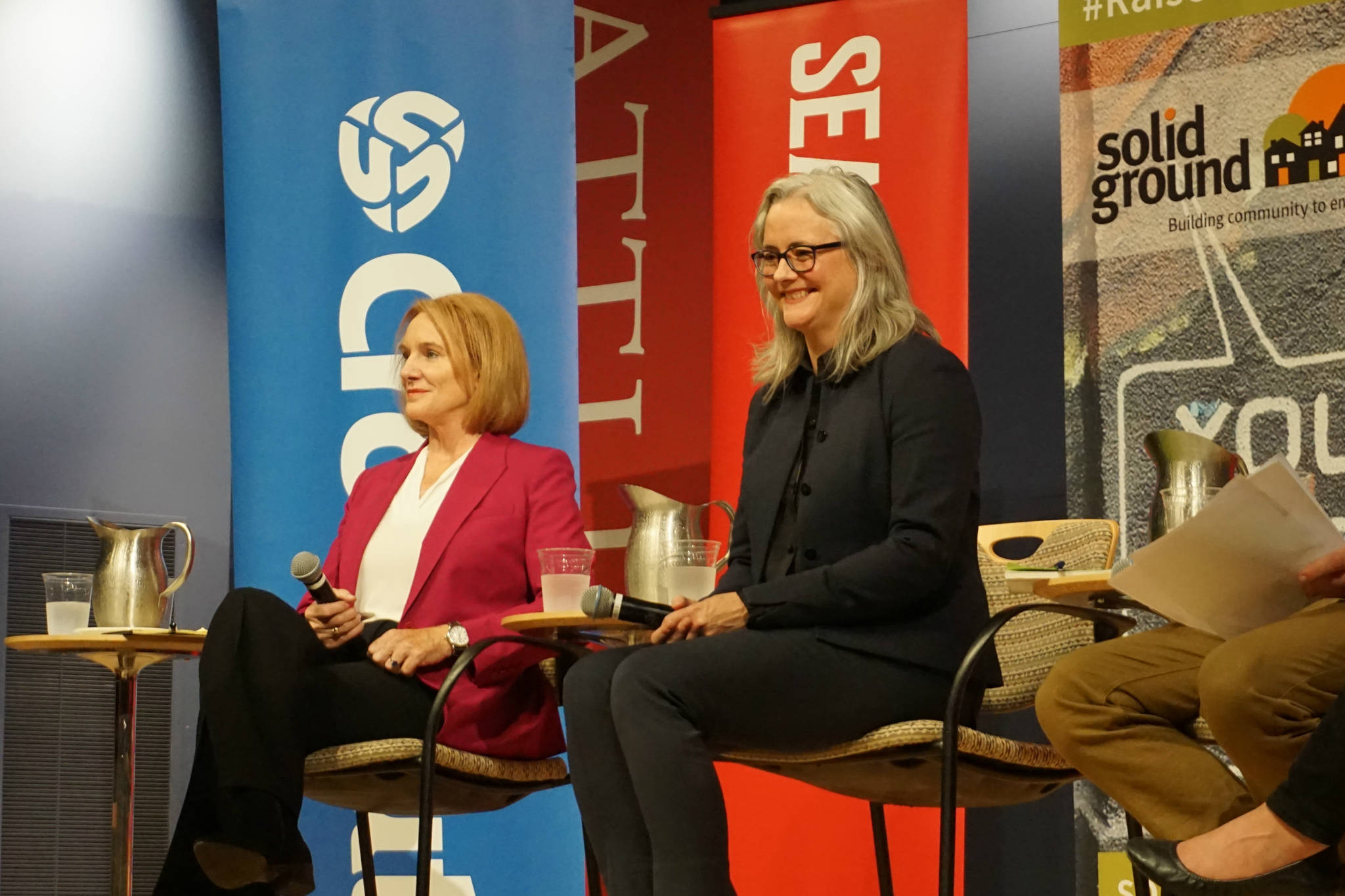The Civic Alliance for a Sound Economy (CASE), a political organization sponsored by the Seattle Metropolitan Chamber of Commerce, has contributed $611,000 to date to a Political Action Committee (PAC) called People for Jenny Durkan. The biggest chunk of that six hundred grand was just dropped a few days ago: On October 16, CASE paid $475,000 and then $50,000 to the Durkan PAC, according to the state’s Public Disclosure Commission.
CASE’s funding of a Durkan PAC means that corporations such as Amazon, Vulcan, Expedia, Starbucks, CenturyLink, and Comcast can funnel money into Jenny Durkan’s mayoral candidacy without doing so directly. Amazon has contributed $350,000 to CASE this year, for example (the largest contribution from a single entity), and Vulcan has donated a little over $186,000, but there is no public information about how much of the $611,000 the Jenny Durkan PAC has received comes from any one company.
It is possible, according to the Seattle Times, that “more than a dozen” companies that have contributed to CASE this year “may be barred from giving to Durkan directly due to the new Honest Elections Seattle laws” that prohibit city contractors and companies that employ lobbyists from donating to local political campaigns. But there’s nothing illegal about CASE funding a Durkan PAC; it’s just less transparent than the Cary Moon campaign would like.
“If big corporate interests want to fund a no-limit campaign for my opponent, they should do so with full transparency and accountability to the voters, and stop using our regional chamber of commerce as a smokescreen,” said Moon in a statement Tuesday, in conjunction with a press conference at Le’s Deli & Bakery, near the Othello light rail station. She used the recent, corporate-funded contributions to the People for Jenny Durkan PAC as a springboard to talk about her plans to help small businesses thrive in Seattle.
“The more large corporations own our city, the more it will feel like an office park and continue to become a city of haves and have nots. We need to listen to and support local business owners and operators,” Moon said in a statement, adding during the press conference that “in the mayor’s race the choice is stark.” Her campaign also noted that the same companies that have contributed to CASE have also contributed to past efforts to defeat Honest Elections Seattle, municipal broadband proposals, and the city’s minimum wage. (It did not, however, note that in the spring, Moon sought a CASE endorsement, too; she filled out its questionnaire, but CASE endorsed Durkan.)
Moon announced Tuesday that she plans to support small, locally-owned businesses by establishing an office that gives small businesses technical assistance; improving access to small-business loans; implementing “the best solutions to commercial rent stabilization”; creating sector-based focus groups so the city can better communicate with small business owners; and lobbying the state to implement a “more steeply progressive B&O tax” so that small businesses will pay significantly less in taxes than their larger counterparts, among other things.
Durkan, too, has big plans to help small businesses thrive. Her plan for small-business growth, released in late September, notes that “our small businesses employ nearly 200,000 people in Seattle, or well over five times the number of people that Amazon employs here.” It also makes a lengthy list of specific proposals, including creating a Small Business Advisory Council; exempting small business startups from the city’s B&O tax for three years; incentivizing youth employment for small business owners; and “work[ing] with developers and small business owners to create more affordable commercial spaces.”
Taken together, Durkan’s and Moon’s plans for small businesses feel similar, as do their discussions of the “haves and have nots.” This is nothing new, of course, but there’s a big Amazon question facing Seattle right now: As the tech giant looks for HQ2, city leaders have sent off an apologetic letter, asking for a fresh start and a “new relationship” with the company that now owns about a fifth of all office space in the city. “Grow with us,” the letter reads.
Yet the Moon campaign seems to suggest Amazon’s outsized political contributions might encourage “large corporations [to] own our city.” After the HQ2 announcement, in a statement, Moon compared Amazon to Boeing, saying “we’ve seen with Boeing how a bidding war over billions in tax breaks for corporations only helped the wealthy few while doing nothing to keep good paying jobs here. I’m not interested in playing that game if Amazon isn’t serious about helping to pay for the impacts of their rapid growth on our city.”
With the newly-reported Amazon contributions to CASE ($100,000 new dollars were posted on October 12), the company seems to be signaling that it’s not too interested in negotiating with Moon, either.
sbernard@seattleweekly.com








